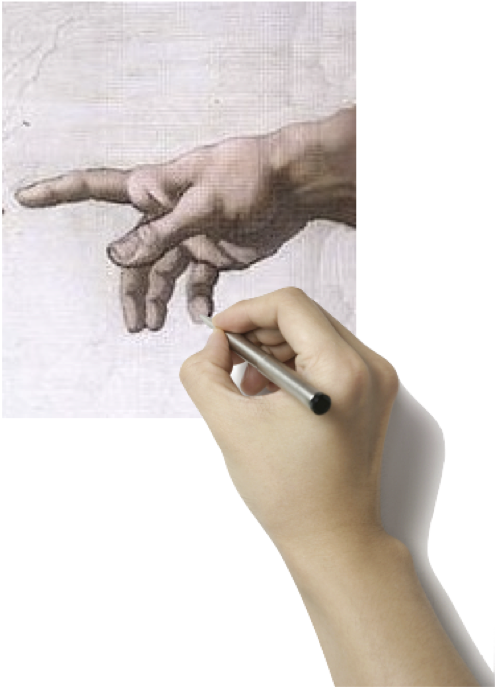| In this week's Torah portion, Ha'azinu, Moses recites a farewell poem to the Israelites in which he tells the story of the Jewish past and future. The Hebrew of the poem is flowery and rather difficult to understand, but it basically can be summarized like this: God has been wonderful to the people of Israel. God created them and took them out of the wasteland of the wilderness and God personally led them to a bountiful land to sustain them. But once the people were living the good life off of the fat of the land, they promptly forgot about God who had given them their good fortune. Israel "neglected the Rock that gave birth to you, forgot the God who formed you" (Deuteronomy 32:18). |
And this is where the poem takes an unexpected turn. We might have expected that Moses would say, as in other narratives of Deuteronomy, that Israel would then repent from its evil ways and God would take them back (for example, Deuteronomy 30:3). Instead, God says, "I might have scattered them and erased them from human memory" were it not for Israel's enemies who would say of Israel's defeat, "Our power is triumphant! It was not Adonai who did any of this!" (32:26-27). The poem says that God only saved Israel because to do otherwise would have caused the other nations to believe they had defeated God. God saves Israel because it is good for God, not because it is good for Israel.
This message directly contradicts the central teaching of Yom Kippur, which we just observed hours ago. Yom Kippur says that God waits until the very last moment for us to repent so that God will take us back in love. Ha'azinu says that our repentance does not matter. God acts as God acts for God's own reasons. Perhaps the message is a necessary counterpoint to Yom Kippur.
After spending an entire day believing in the efficacy of our repentance, prayer and charity—a day of putting ourselves through the wringer to move God's compassion—we are reminded by this portion that we don't really believe, after all, that we can force the hand of God. Good thing, too.
If we really had the power to pressure God to save us—even through sincere repentance—wouldn't that mean that we have a power that is superior to God's power? Is it possible that we have free will, but God is a slave to our acts of t'shuvah? No. It does not work that way. God does what God does and human beings can only accept it.
Yom Kippur does tell a great truth. Our actions matter. By changing ourselves, we have the ability to help repair the world. But that truth is only half of the truth. The other half is that sometimes we strive to change and the world does not get better in return. Ha'azinu reminds us that part of having faith is knowing this, and striving for change anyway.
The day after Yom Kippur (and every day after that), we tone down our messianic expectations about winning life for ourselves and the world, and thereby escaping death. We remember that, in the end, God is God. We are not.
Other Posts on This Topic:
Speaking to the Empty Chair
The King's Advisor


 RSS Feed
RSS Feed
